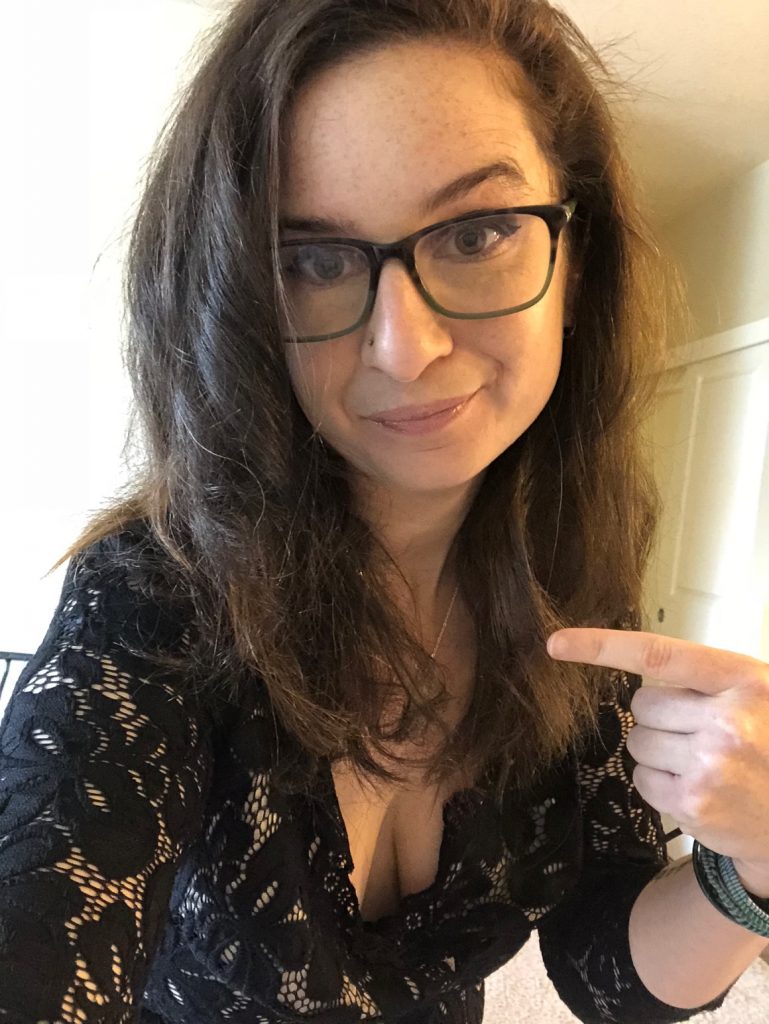Hiding my depression as a teenager, in some ways, was easy. I was an actress, so I became adept at acting “normal.” I was great pretending not to be depressed. Holding my emotions inside became habitual. It was something that I believed was necessary so that people weren’t worried about me or worse, judgmental of my stability. In the 1990’s mental illness was pushed under the rug. Stigma was extremely prevalent, much more than today, and that’s saying something because the stigma of mental illness is still alive and well in 2017. When I was in high school, there were a lot of goth girls. They wore black and rocked some serious black liquid eyeliner too. They had fishnet stockings on their arms and listened to Marylin Manson. I admired their ability to be openly depressed and express themselves candidly through clothing and art. I, on the other hand, held my goth-ness inside. My darkness was internal as opposed to external. I wanted so badly to emulate the goth kids. I wanted to be out there. I thought about approaching them and saying “hey, I get it. I’m depressed too.” But doing that seemed terrifying. Being real about what I was experiencing was so frightening that I kept it to myself to my own detriment. I got sicker and sicker from pretending, which is so incredibly ironic because I was in school to “pretend” professionally. Acting is pretending, but the thing I was pretending the most at is being emotionally well. That’s the hardest role I ever played in my life because it wasn’t “close to self.” It was far away from the actual truth of the matter.
If I could go back to high school as my 38-year-old self and talk to that scared 16-year-old, I would tell her that it’s okay to ask for help. I’d remind her that asking for help wasn’t a weakness. I’d tell her how beautiful she was even though she wanted to die. I’d hold her while she cried. I’d comfort her while she told me how afraid she was to grow up and take care of herself. I would reinforce the fact that she could take care of herself. I would tell her that taking care of herself is something that takes time to learn and just because she has a mental illness doesn’t mean she can’t do it. In fact, she has more power to take care of herself than some people who don’t have mental health issues. She has the ability to brave through extreme emotions and come out stronger. Before I left her, I would play with her hair and tell her that I loved her and that soon she would learn to love herself even though I knew that she thought she could never do that. I’d reinforce the fact that she didn’t have to believe she’d find self-love, but encourage her to keep living.
She kept living. She grew up and she met a man, had children and became a professional writer. I wish she could see me now. I know she would be proud.
Sarah Fader is the CEO and Founder of Stigma Fighters, a non-profit organization that encourages individuals with mental illness to share their personal stories. She has been featured in The New York Times, The Washington Post, The Atlantic, Quartz, Psychology Today, The Huffington Post, HuffPost Live, and Good Day New York. Sarah is a native New Yorker who enjoys naps, talking to strangers, and caring for her two small humans and two average-sized cats. Like six million other Americans, Sarah lives with panic disorder. Through Stigma Fighters, Sarah hopes to change the world, one mental health stigma at a time. www.sarahfader.com
Living with chronic depression can feel exhausting, especially when you are “pretending to be okay.” Many times depression isn’t what it appears to be. This article on BetterHelp describes what the symptoms of chronic depression are and how to look out for them. Check out the symptoms of Major Depressive Disorder on Mayo Clinic to determine whether you might be struggling with depression. You can take Aaron Beck’s Depression Inventory to determine what level of depression you have. Whatever your symptoms are you deserve to get well and you can. You are not alone.









I, too, was an actress and hid my depression well. My hypomania led to achievement, at a cost.